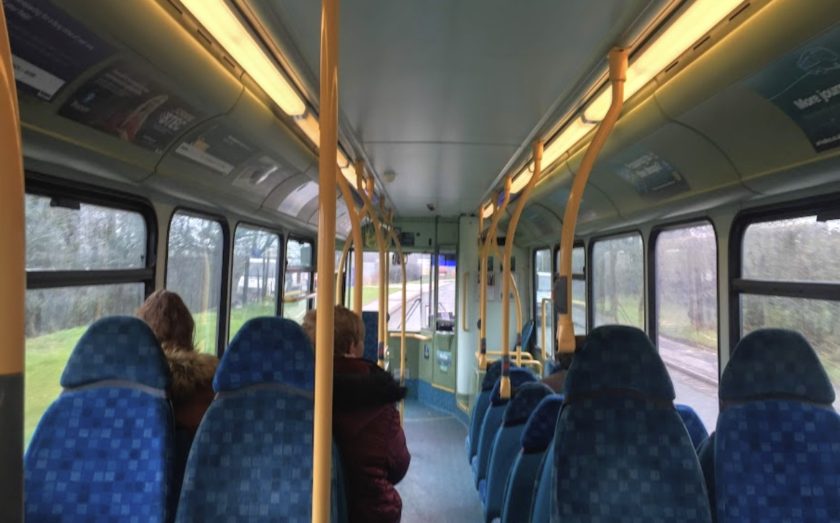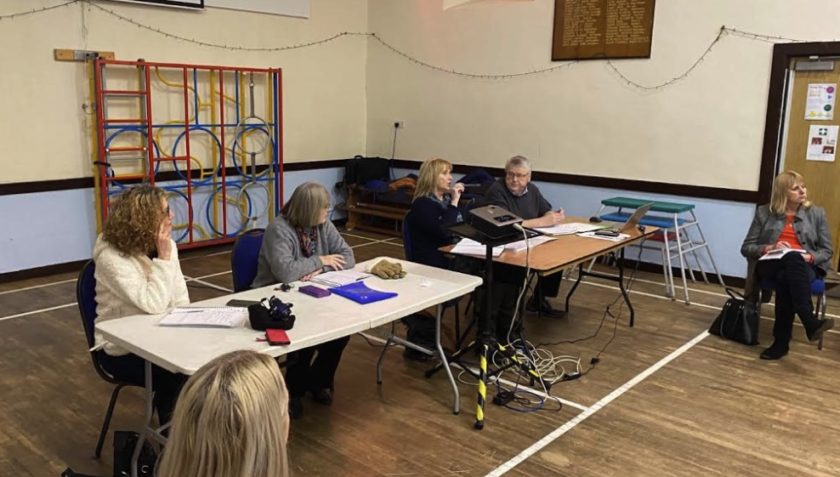North Wales MS calls for pragmatic approach to 20mph speed limits to save local bus routes

In a bid to address the challenges facing local bus services in North Wales, Labour Member of the Senedd Carolyn Thomas has called for a pragmatic approach to the implementation of 20mph speed limits.
The call comes after Arriva Wales announced changes to its bus routes, including the X51 service from Rhyl to Wrexham, which will no longer stop in the village of Llandegla.
Arriva cited “reduced speeds across the network” as the reason for the alteration, which began on 14 January.
The bus operator has made these changes following a punctuality review, revealing that 90% of its routes across the region will be affected.
In response to this situation, Carolyn Thomas MS addressed the First Minister in the Senedd on Tuesday, advocating for a more balanced approach to the 20mph speed limits on arterial routes across the region.
Ms Thomas has been actively engaging with the local community in Llandegla, attending meetings to hear residents’ concerns and working towards a practical solution.

She has also met with Arriva and union representatives at the bus depot to hear more about the challenges they are facing regarding punctuality.
Cooperating with stakeholders including local authorities, Transport for Wales and Welsh Government the Senedd Member hopes that arterial roads along the route could be made back up to 30mph where it is safe and makes sense to do so.
Ms Thomas’s proposal includes reassessing speed limits on arterial roads, potentially reverting them to 30mph where it is safe and logical.
During Tuesday’s Senedd session, Ms Thomas highlighted the need for a comprehensive review of speed limits and their impact on bus punctuality.
She asked the First Minister: “We know there is variation across Wales in terms of the roads that have remained at 30 mph. The review is going to look at this issue, and that we need to engage with our partners in local government and bus operators as part of that.
“We’ve seen that the regional scrums and the corporate joint committees are working well in terms of bringing local authorities together in dealing with some of the challenges facing the bus industry in Wales.
“First Minister, do you agree with me that they provide an ideal forum for that detailed discussion for looking at the impact of speed limits on arterial routes and punctuality, as well as helping to identify areas where bus priority measures could make a real difference?”
The First Minister responded positively, saying: “I very much agree with the point that Carolyn Thomas has made about bus priority measures being the right answer to making sure that buses are able to move through communities, particularly where there is a great deal of traffic, and that’s why the Welsh Government has provided millions of pounds in this year’s budget, and will do so again in next year’s budget, to help local authorities with the costs of creating bus priority lanes to allow public transport to move swiftly through those areas.
“But I also agree with the point that Carolyn Thomas made. I think she echoed, in a way, a point I was trying to make in my original answer, which is that a partnership approach between the responsibilities of the Welsh Government and the responsibilities of local authorities will fine-tune this policy, and iron out any anomalies that have been apparent in the first months of its operation.
“I think regional working between local authorities based on corporate joint committees and those regional arrangements that have been put in place for bus services is a very sensible way for this to go, and in the review that we’ll be carrying out of the guidance that the Welsh Government has provided we will certainly be engaging with local authorities on those regional footprints.”
Spotted something? Got a story? Send a Facebook Message | A direct message on Twitter | Email: [email protected]Latest News









